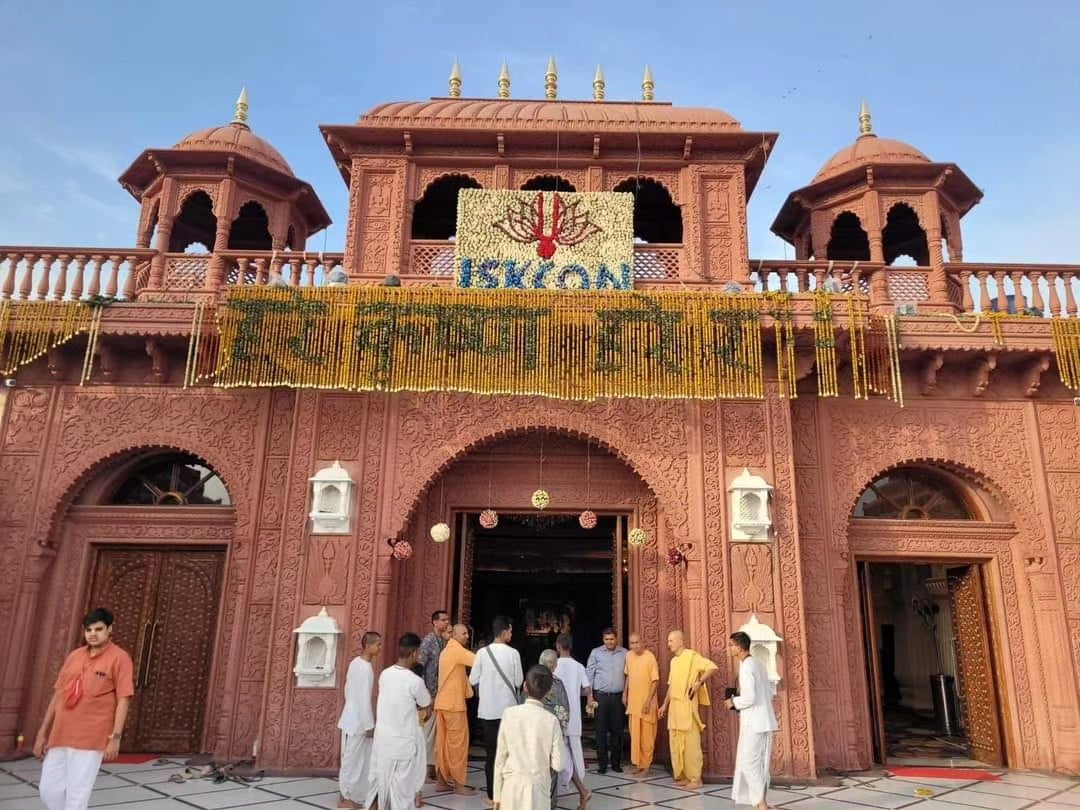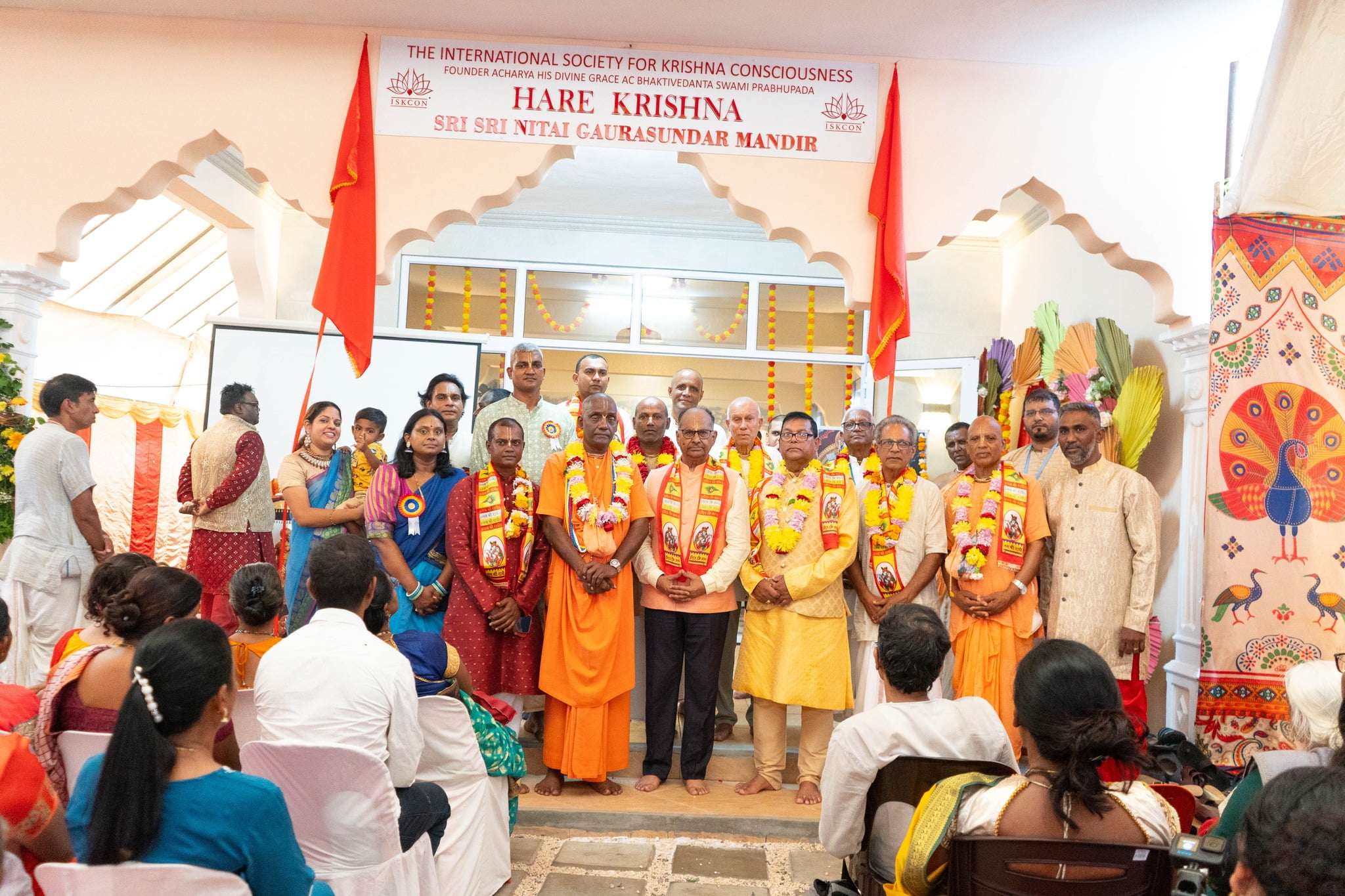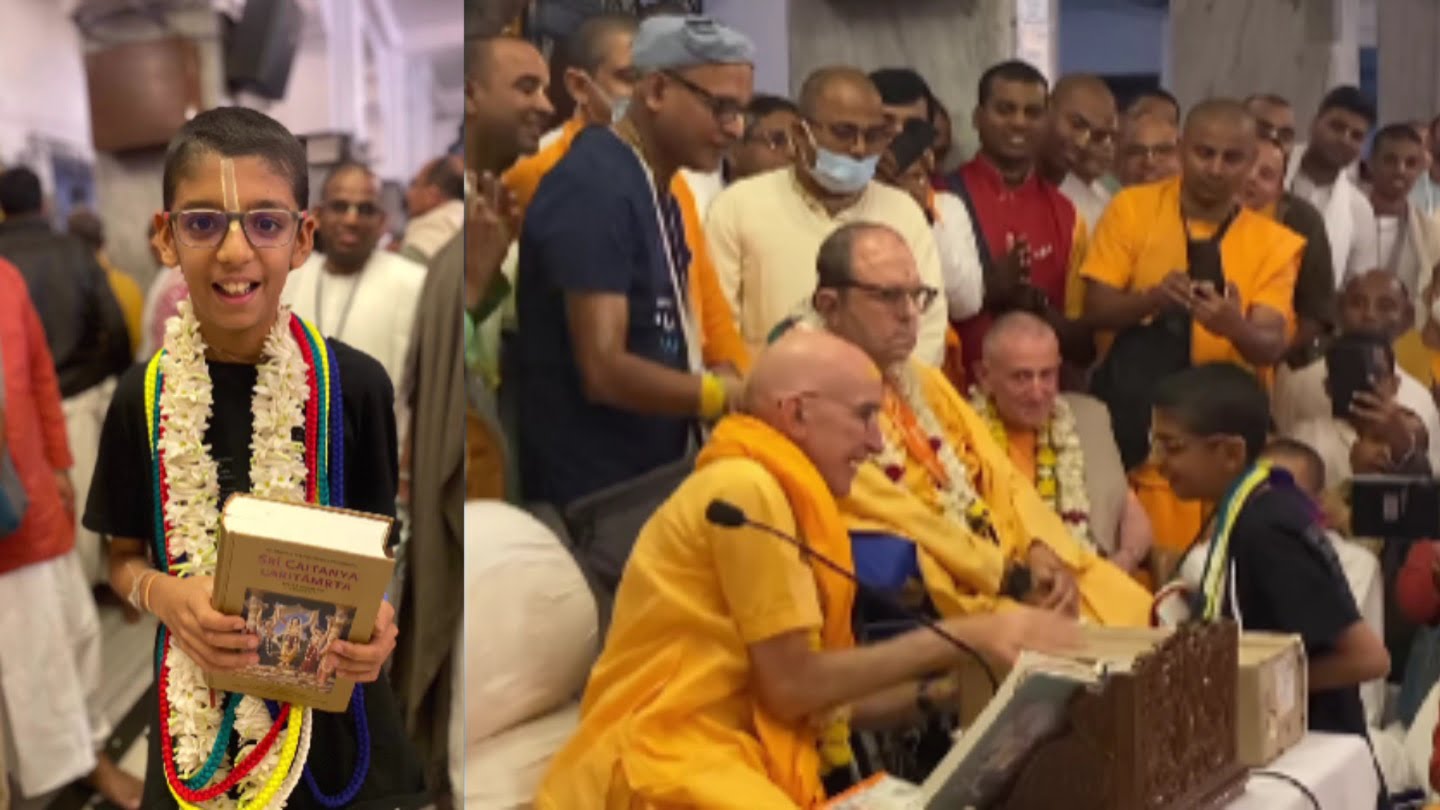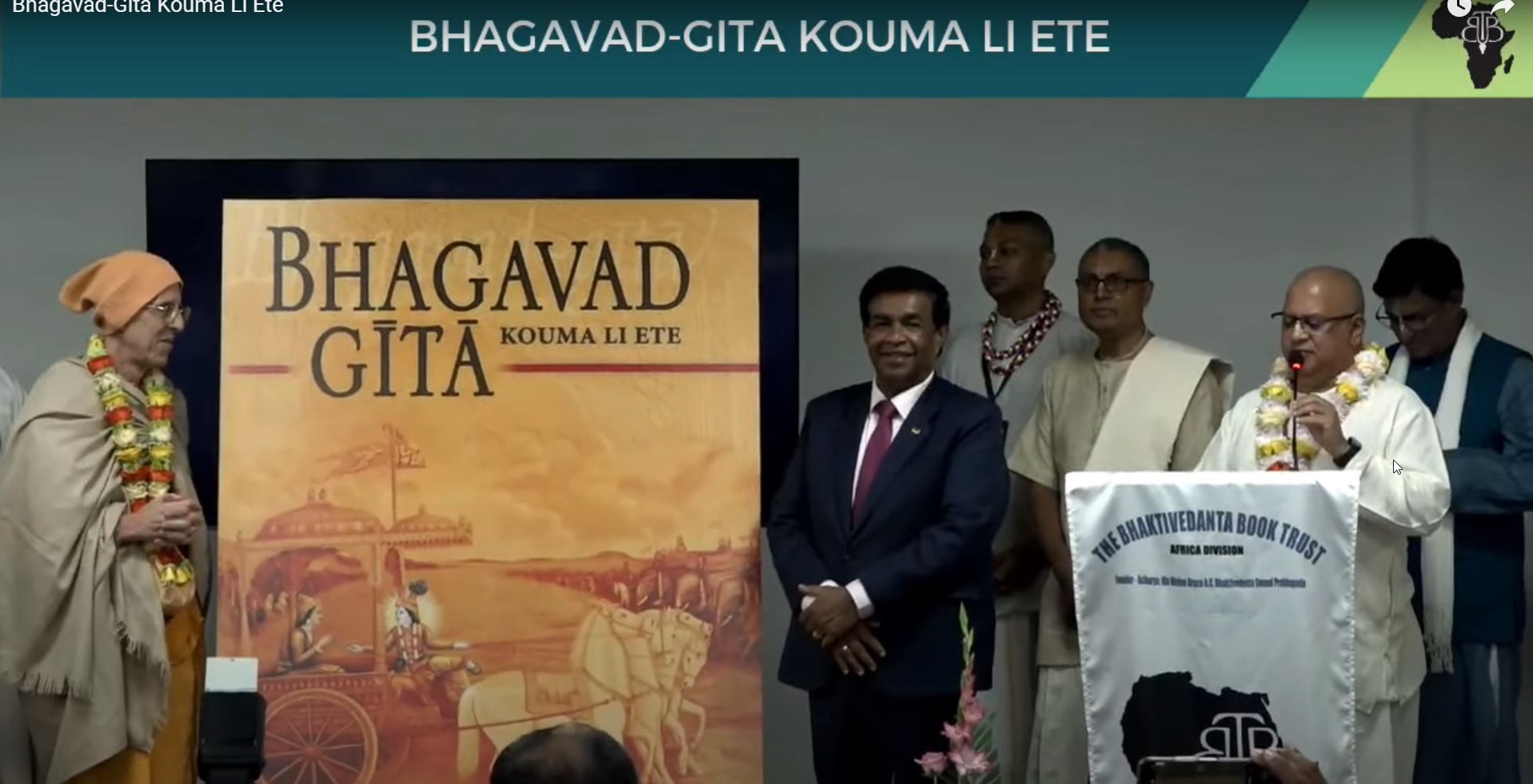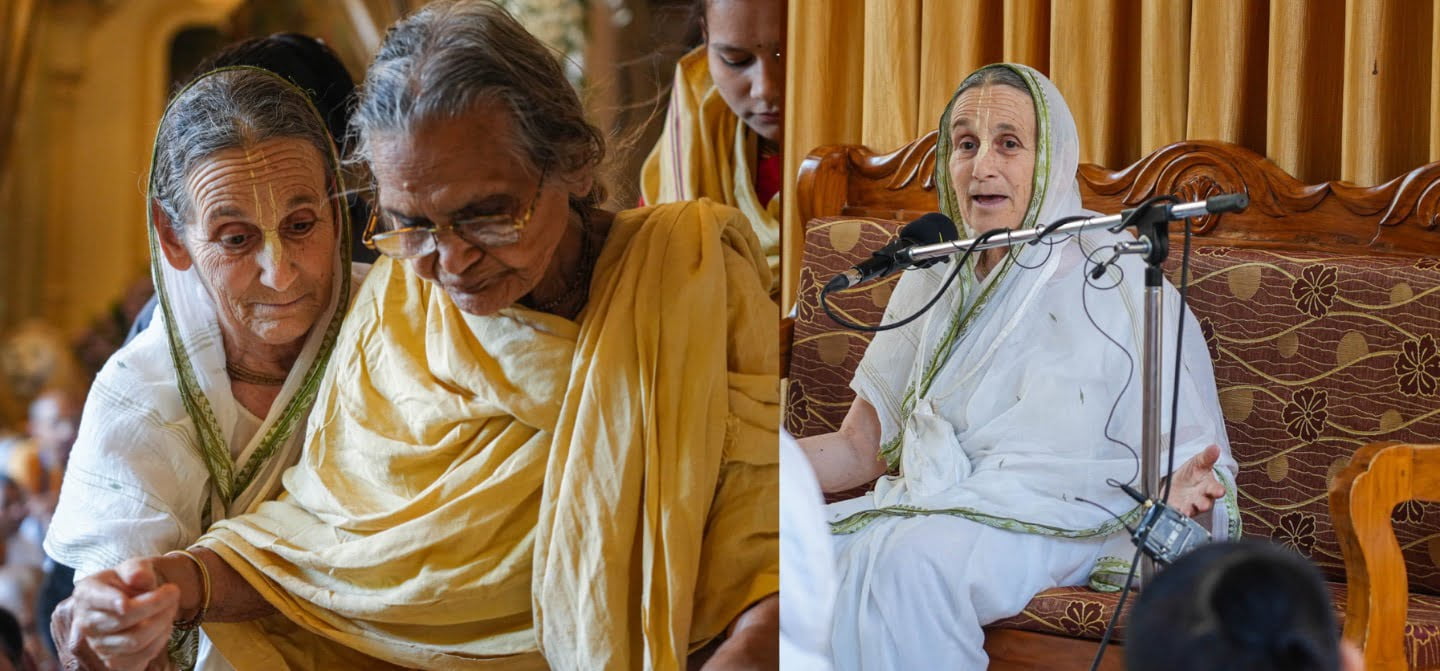New “Urban Monk” Book Makes The Spiritual Achievable
By Madhava Smullen | Jul 19, 2013

With his new book out July 15th, urban monk Gadadhara Pandit Das—who currently resides at the Bhakti Center in New York City—is helping the average American realize that spirituality can be for them too.
In telling the story of his life, his book Urban Monk: Exploring Karma, Consciousness and the Divine demystifies a “Hollywood” idea of what a monk is and emphasizes that any “normal” person can follow the spiritual path.
Gadadhara Pandit was born in Kanpur, India, but grew up in Los Angeles after his parents moved to the US in 1980.
Material success came in abundance as they progressed from struggling immigrants to running a multi-million dollar jewelry business.
But just as dramatically, their American Dream was destroyed.
“I was still in college when the business collapsed, and we lost everything,” says Gadadhara Pandit. “We found ourselves moving to Bulgaria in Eastern Europe, looking for ways to move forward with our lives.”
That was when Gadadhara began reading Srila Prabhupada’s Bhagavad-gita As It Is. His father had been a supporter of ISKCON, and Gadadhara himself had visited the ISKCON temple in Los Angeles once or twice. But he had never really bothered reading the sacred book when life was good.
When Gadadhara moved back to the United States with his family in 1995 at the age of 25—this time to New York—he started to regularly visit the ISKCON temples in Brooklyn and 26 2nd Avenue.
In 1999, he travelled to India with the intention of trying out the monastic life in an ashram for one month. Instead, he ended up living for six months at the Radha Gopinath temple in Chowpatty, Mumbai. And when he returned to New York, he moved into the ashram at 26 2nd Avenue.
Fourteen years later, Gadadhara Pandit is still a celibate monk, living at the Bhakti Center and serving as the Hindu Chaplain for Columbia University, New York University, and Union Theological Seminary.
At Columbia, he has inspired the students’ Bhakti Club, and has held many vegetarian cooking classes, Bhagavad-gita discussions, and meditation sessions. Today, he teaches official accredited courses on the Bhagavad-gita and Srimad-Bhagavatam on campus. He also gives many students spiritual counseling on common life problems.
In his book, Gadadhara Pandit dispels what he calls the “Hollywoodized” notion of a monk—someone who lives in a picturesque monastery in the Himalayan foothills, and was probably dropped off there at the age of five.
“My monastery is surrounded by bars, nightclubs, tattoo shops, laundromats, subway stations and bus stops,” he says. “My mountain is the sixth floor I live on. From there I see First Avenue, and the construction going on, the cabs and buses and people racing back and forth on their bikes.”
Gadadhara’s mission in writing his book is to help people realize that anyone can follow the teachings he does.
“Somebody might think, ‘How does that relate to me? He’s a monk in a monastery. I’ve got a wife and kids, I have to work ten hours a day, and I’ve got a mean boss,’” he says. “So in my book I let people know that I can relate to them. I talk about my upbringing in the U.S., and the challenges I faced as the only Indian kid in my school. I talk about my dad establishing his business, and life in Los Angeles. I talk about the regular everyday things I was involved in. So they can see, ‘Oh, this guy is like me. I did these things. I play basketball. I like the beach. I like the LA Lakers.’”
Gadadhara Pandit then writes about how the rug was pulled out from under him. He talks about how he turned to spirituality and the Bhagavad-gita to overcome the tremendous financial and emotional struggles he was going through, and to gain a positive perspective on all that had happened.
“One of the things that I’m hoping to communicate,” he says, “Is that when we go through difficult times in life, we should look at going deeper into our spiritual life as one of our solutions, rather than just trying to always fix the material.”
In his book, Gadadhara talks not only about his journey to monastic life, but also about his current work as a monk.
“I wanted to help people understand that not all monks live the way that Hollywood portrays,” he says. “That an urban monk is a monk who lives in the city and helps other people with the problems and challenges they’re going through. And my past experience in the finance world helps me to relate to the drive that people have to succeed, and the challenges that can come about as a result of that drive.”
In his book, Gadadhara talks about the interactions he has with students, who regularly come to talk to him about the stress in their lives, or the divorce they’re going through, or the death of a friend or relative.
Gadadhara Pandit’s first step is to really listen to them, to make them feel cared for and heard. Then, as his relationship with them builds, he may begin to share with them insights from the teachings of the Bhagavad-gita in a very gentle and sensitive way.
For instance, when someone approaches him mourning the death of a loved one, he may share the teachings of the second chapter of the Gita on the difference between the body and the soul.
“It’s very powerful actually, the second chapter,” he says. “It gives people so much hope in that difficult time. I’ve seen it. They walk away feeling hopeful: ‘Oh, my mother, my grandfather, they’re still around. They’re just in a different place right now.”
As well as describing his personal experiences as a monk, Gadadhara also presents some Krishna conscious philosophy in his book in a way that is relatable to the Western mind. This is a skill he has developed over time through speaking to students and giving courses.
“I’ve learned not to come across like we’re better than everyone else, or like what we have is better than what anyone else has,” he says. “I think there’s nothing that turns people off more than that. Rather, I tell them, ‘This is the mantra we chant, and I encourage you to try it out. If it works for you, wonderful.’”
Gadadhara also makes sure to accept people and their beliefs as they are.
“If somebody disagrees with my philosophical presentation, instead of getting defensive, I really try to hear why they’re saying that; what life experiences they’ve had that are making them want to say that. And I respect that. Because most of the people that come to me aren’t just challenging me or trying to be smart alecs. They’re sincere people.”
As a result of his non-pushy approach, Gadadhara has had people who claim to be agnostic and atheist continue to attend his Gita study program month after month.
“And I’m telling myself, this person doesn’t believe in God, but they’re talking about Krishna and the Gita with me for a whole year,” he says. “And we become good friends.”
All this is discussed in Gadadhara Pandit’s book, Urban Monk: Exploring Karma, Consciousness and the Divine. Just released on July 15th, it is currently available on Amazon.com in paperback and Kindle editions.
Gadadhara has been promoting the book through his active Facebook page as well as Twitter, and is letting ISKCON temples across North America and Europe know that he would like to come to them to speak on the book and its message.
Already, the book is receiving glowing reviews from readers. One graduate from Columbia university wrote: “I’d always seen monks as different from the rest of us; almost like a different species of human. Of course their childhood was probably spent wondering about the universe and praying to God, right? I think the emphasis you placed on how normal you are is really the deepest strength of this book. It makes the spiritual achievable.”
“My point is simply that the knowledge you offer is going to be accessible and meaningful to a different kind of audience,” she continued. “I feel strongly that the book is accessible to non-Hindus, but also to people with very little interest in religion. Your writing style, unique story, and pragmatic approach to understanding the central tenets of Bhakti all contribute to this. It is a book that will help open the door to spiritual consciousness.”
Please visit urbanmonkbook.com.
To purchase the book Urban Monk, please click here.
It is also available through Amazon Europe.




